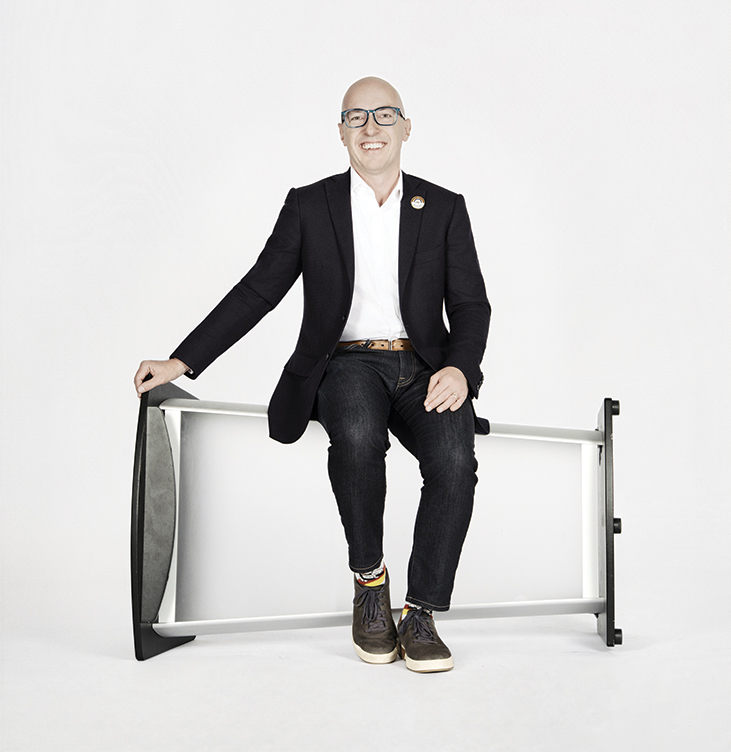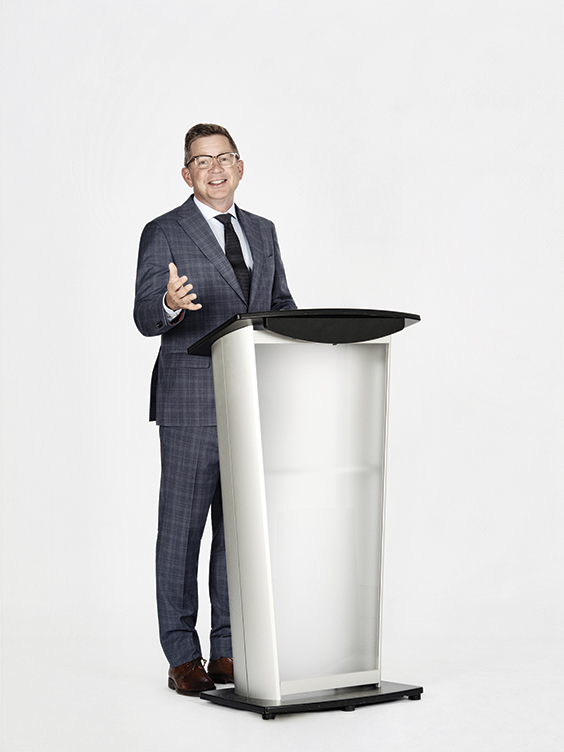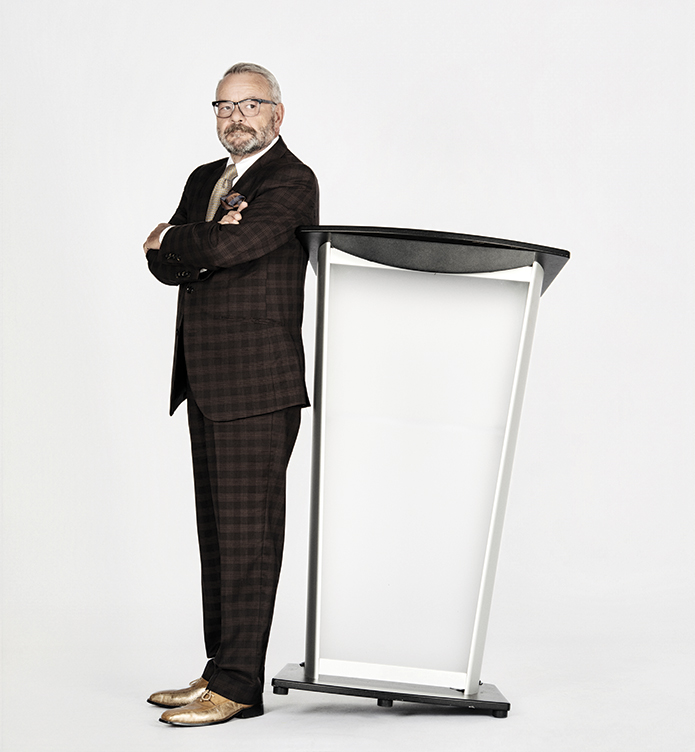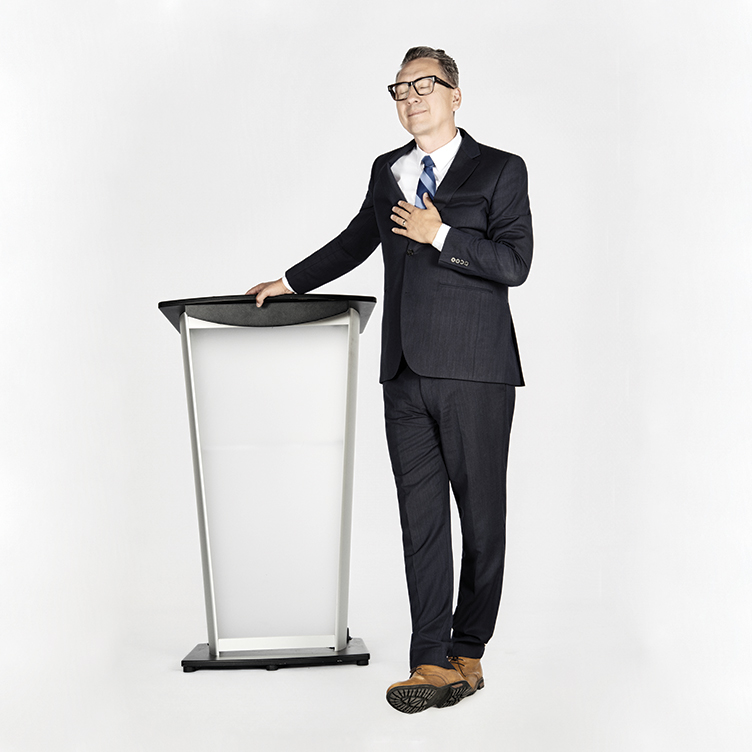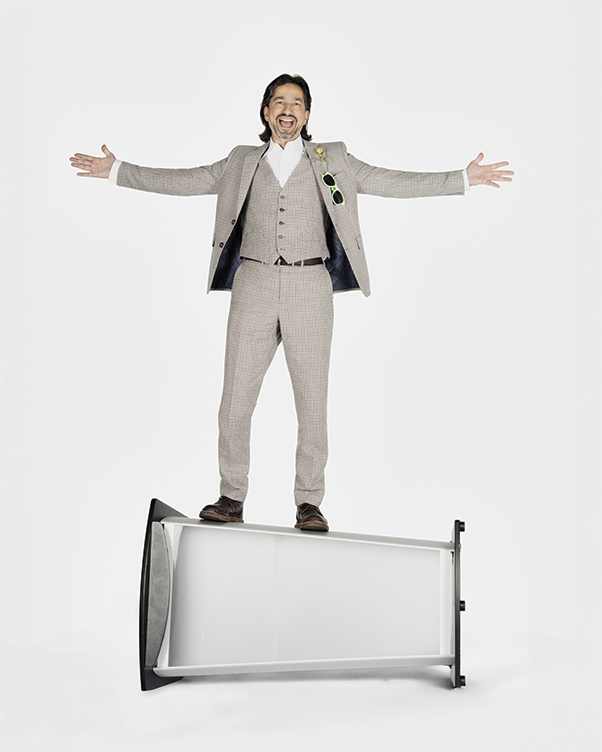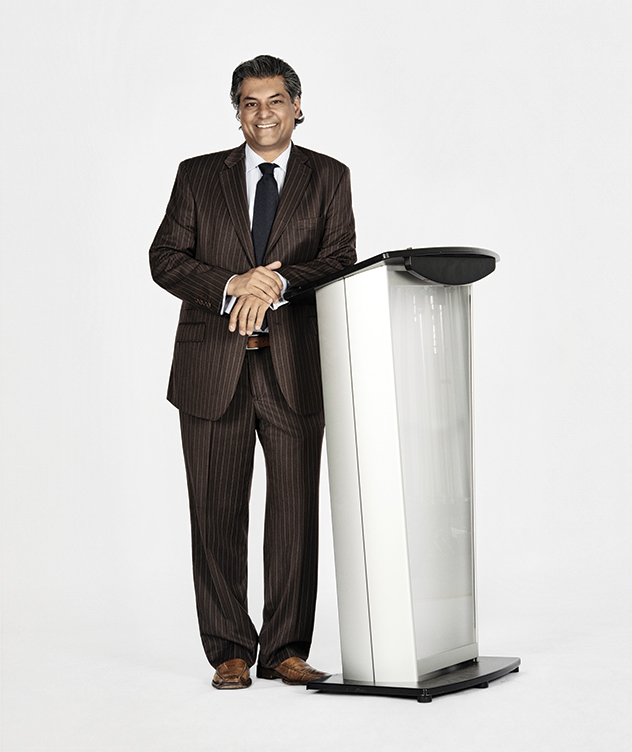The October 20, 2025 election feels like a turning point. Cost-of-living pressures are biting, poverty rates are high, and while the overall crime rate has dropped to its lowest in more than a decade, violent crime has risen sharply. Meanwhile, years of progress on homelessness and overdoses were undone by the pandemic, a shift that the City has thus far been unable to temper, leading to historically high numbers and some of the worst per capita rates in Canada.
Frustration is also mounting over uncoordinated construction that makes traffic intolerable, compounded by rapid growth as Edmonton hurdles toward two million people.
Against this backdrop, voters’ priorities have shifted. While past campaigns leaned into big-city building, the mood in this election is all about going “back to basics” — property-tax freezes and spending restraint, as well as core services like renewed focus on road maintenance, snow clearing and policing. And for good reason: despite an unpopular tax hike this year, Edmonton’s debt limits are nearly maxed out.
This is also a historic election under Alberta’s Bill 20, which opened the door to big-money donations and party affiliations on the ballot, raising concerns over corporate and partisan influence.
So who would want to deal with such a headache? As it turns out: many would. Too many, in fact, to interview them all.
That was the intent when this project began in May, but by mid-summer the number of candidates made it impossible. Instead, we focused on six leading contenders, guided by a late-August Leger poll on awareness and voter intent. For a fuller picture, we encourage you to learn about the other candidates, which, as of September 1 include business consultant Vanessa Denman; lawyer Ronald S. Billingsley, Jr.; civil engineer Malik Chukwudi; health-care administrator Olney Tugwell; activist Andrzej Gudanowski; and policy advisor Paul Bakhmut. A complete list is available on the City of Edmonton’s 2025 Election site.
Ahead, you’ll find concise, policy-driven conversations with the six front-runners, who weren’t provided any questions in advance before meeting with Editor-in-Chief Omar Mouallem. Each one-hour conversation was edited for brevity and clarity, then independently fact-checked for accuracy and context of the transcript, as well as the veracity of their claims. What remains are candid exchanges that cut through talking points and reveal how these contenders hope to lead Edmonton.
Party: Independent
Experience: Three-term city councillor since 2013; community organizer
The Pledge: Focus on affordability, smarter growth and core services (including LRT), while pressing the province to improve poverty and addictions — or properly fund municipalities to do it themselves.
Andrew Knack (Top 40, ’23) surprised many when he entered Edmonton’s mayoral race, having previously vowed not to seek a fourth term on city council — where he’s sat virtually his entire career, starting at age 23 straight out of university. Known as a tireless “retail politician” willing to engage with everyone, Knack has built a reputation as city hall’s nice guy. But might his people-pleasing tendencies double as his Achilles heel in an election where many voters want a fighter?
Edify: Looking back at your three terms as councillor, what are you most proud of doing?
Knack: Starting in my ward (Nakota Isga), getting the Lewis Farms recreation centre, library and district park to come to fruition. The other major project is the Valley Line LRT. When I started on council in 2007, the conversation was about securing funds just to start it, which meant years before completion. That was not acceptable because, for a city of our size, you can’t build your way out of congestion without mass transit. It’s also about affordability — the number one issue I hear about today. If a family can be a one-car household instead of a two-car household, they’re saving about $10,000 a year.
Edify: Your core message seems to be “invest now to save later,” but Edmontonians have heard that for decades and yet budgets keep rising. What do you say to voters who want change and see you, the longest-serving councillor, as part of the problem?
Knack: The best indicator of what I’ll do is what I’ve done. Take infrastructure: I set up a motion last year that sped up road construction by closing intersections for a shorter period of time — get in, get out. On finances, yes, I’ve been part of a council that supported tax increases, but I was also part of the council that delivered the lowest increase in 25 years. I respond to the moment. And I’m proud of my record of engagement and finding common ground, even across political divides.
Edify: For readers concerned about infill and upzoning, make your case about why it’s necessary.
Knack: Almost every conversation I’ve had about infill has started with a shared agreement: we can’t keep expanding outward because it’s financially and environmentally unsustainable. Zoning has always applied to the entire city, and there’s an understanding that we make decisions for all Edmontonian’s best interests, even though occasionally there are communities, like two I represent right now, Crestwood and Glenora, that want to go down a different path with restrictive covenants, which are personal property decisions. So, I don’t think the city should remove the covenant option, nor should people feel pressured into one by their neighbours.
Edify: Do you trust the provincial government to adequately fund shelters and supportive housing?
Knack: No. Homelessness is at record levels, mental health, addictions and drug-poisoning crises are playing out daily on our streets. Groups like Alberta Municipalities have made a simple request of the province: What is your detailed action plan? Where will units be built? What do you need from municipalities? Don’t just announce funding over the next couple years — show us a plan. We’ve asked repeatedly and still haven’t received it. For years we’ve been trying to fill the gaps left by the province on housing and homelessness. I think it’s time we ask: what if this was our jurisdiction? Because waiting on the province hasn’t worked.
Edify: What would you want to see specifically in terms of the drug-poisoning crisis? Would it include supervised consumption sites, drug testing, naloxone distribution, safe supply?
Knack: It’s everything you’ve listed, as well as the province’s recovery centres. When it comes to the drug-poisoning crisis, it’s an and, and, and, and approach. This provincial government has been very ideologically focused on recovery — that’s not necessarily a bad thing. We need reactive solutions, but we also need to invest heavily in prevention.
Edify: The City’s relationship with the Province is crucial. Given your outspoken criticism, should voters worry this could hinder your ability to get things done?
Knack: I don’t think so. I’ve worked with people in governance across the political spectrum and we’ve been able to accomplish things. That said, it’s incumbent on the mayor to speak up when the city is being mistreated.
Edify: You’ve called the allowance and establishment of municipal parties “poison.” As an independent, do you worry about being at a disadvantage?
Knack: The one disadvantage of running as an independent is financial. I can raise up to $1 million — the provincial cap — but parties enjoy roughly a three-to-one fundraising advantage. And since party resources can be shared, it’s a distinct advantage. That said, Edmontonians have been clear: they don’t want big money or partisan structures in local government. There’s a huge opportunity to prove you can run — and win — without playing the partisan game.
Party: Better Edmonton
Experience: Two-term city councillor since 2017; engineer and business owner
The Pledge: Fiscal restraint, core services over big projects, bus rapid transit over LRT and stricter boundaries between city and province. Spend on items helping the most people instead of trying to please everyone.
Tim Cartmell built his reputation on council as a combative voice for fiscal restraint and a critic of city hall straying into provincial territory, often positioning himself as a foil to Edmonton’s last two progressive mayors. Cartmell champions prioritizing core services and delivering them well, a simple but popular message that struck a chord with voters exasperated by rising taxes and obstructed roads. That support took a big hit in July after he skipped a contentious infill vote for vacation, but when I interviewed him in June, Cartmell was still the clear front-runner, riding high on a war chest that supercharged his campaign.
Edify: Reflecting on your last two terms as a councillor, what are you most proud of?
Cartmell: I’m pleased with the things I was able to do for my ward (pihêsiwin). When I first ran in 2017, southwest Edmonton was the fastest growing area but was lagging in infrastructure investment. We’ve brought a number of investments that I’m quite proud of: Terwillegar Drive and at least 20 other roadway projects; getting the Ambleside maintenance site under way that allows for southwest road clearing and landscaping crews to be more efficient; getting the province to widen the Anthony Henday.
I’ve also been on the losing side of a number of votes around more efficient use of tax dollars, setting a standard for behaviour in public spaces. I’ve tried to maintain open dialogue and communication with our colleagues at the province and the police through face-to-face meetings. And so I’m proud of the way that I’ve carried myself with these, even if I’ve been in the minority.
Edify: Is there anything else from your last two terms that you’d want to carry forward as mayor?
Cartmell: I don’t think this council has accomplished much in the last few years. We’ve been spread way too thin and trying to please too many people.
Edify: Isn’t that the job though? To appeal to as many constituents as possible?
Cartmell: If everything is a priority, nothing is a priority. This is one reason why we’ve seen significant year-over-year property tax increases. We’re trying to do so many things for so many people, as opposed to focusing on things that are going to help the most people in the moment.
Edify: When you speak to Edmontonians, what do they say are their biggest priorities and concerns?
Cartmell: Taxes — it’s getting unaffordable to live here. Safety. There seems to be no coordination on city work, and the condition of our city isn’t being maintained. People are saying, “I’m paying a lot of money and I don’t see my money at work. I don’t feel safe. Where is everybody?”
Edify: The solutions to these problems all come at a cost. How can we afford them?
Cartmell: By combing through our budget and eliminating a lot of busy work. If we had a few less middle managers and a few more people on lawn mowers, then our boulevards would look better. So it’s a reallocation of our existing budgets to the services we need most.
Edify: And how many middle-manager positions can you reasonably lose in order to rebuild one road?
Cartmell: Let me rephrase: how many new things can we afford to build on taxpayer dollars right now? How many more arenas and swimming pools and fitness centres? Practically none.
Edify: These amenities are usually for new neighbourhoods to service a growing population.
Cartmell: We want to see complete communities as they develop and evolve. But what is the size and scale of those amenities? Maybe they’re $80 million rec centres, not $350 million. There are also opportunities to repeat construction. Design one efficient building and build it three or four times and do that in partnership with the private sector and other levels of government. So, it’s not that we can’t have these things; it’s whether we can deliver them without increasing taxes by 10 per cent.
Edify: Would you try to reduce property taxes?
Cartmell: A reduction in taxes is virtually impossible. What we want is for taxes to level off for a number of years, so that they become a smaller proportion of the overall cost of living. It will take time to implement the changes we’re talking about.
Party: Independent
Experience: Four-term city councillor (2007–2021); small business owner
The Pledge: Kill rezoning bylaw 20001, refocus city hall on core municipal services and stop downloading provincial responsibilities onto taxpayers. Lead council with a blunt, no-nonsense style.
As a four-term city councillor, Tony Caterina earned a reputation as an effective yet combative conservative voice. His slogan — “There is no substitute for experience” — leans on that record, but his current mayoral run has puzzled many: a low-visibility campaign marked by ribbon “signage” in place of lawn signs, press-release gaffes and unfiltered straight talk. Still, Caterina distinguishes himself with a brand of conservative populism — from pledging tougher policing to promising to kill the “disastrous” re-zoning Bylaw 20001.
Edify: In the four years since you last held office, you were retired, spending time in Florida and looking after your grandkids. Why give that up?
Caterina: I hoped someone would voice opposition on this past council, but they all seemed the same. With 12 councillors, there should be real debate, but it’s been homogenized — continuing bike lanes, rapid infill. What puzzled me most was how tone-deaf council seemed coming out of COVID. With gas and grocery prices rising, it wasn’t the time for high taxation or new spending. Instead, they added to people’s burden.
Edify: It’s a very competitive race. What’s your strategy to pull ahead?
Caterina: My strategy is simple — if you want change, I’m the one willing to make tough decisions. If you like the way things are going, I’m not your guy. Right now, every campaign looks cut-and-paste. Change the name from Cartmell to Knack to Walters and it’s all the same. “I want to hear you. I want to listen to you. I want to know what you think.” Fuck off — they’re just checking the boxes and I’m too old for that.
Edify: You’ve been very vocal against Tim Cartmell in particular. Why?
Caterina: He’s pretending to be conservative, but he’s voted for (almost) every tax increase and budget. Now he’s running on voting “no” to the last budget. But that’s misleading — he voted “yes” to all the capital budget, then “no” to the operating. It’s like building a hospital but not staffing it. It’s fucking stupid.
He’s not mayor material because he’s too thin-skinned, always trying to please everyone, which means he doesn’t stand on principle. If you want to make everyone happy, go sell ice cream.
Edify: What do you hope to achieve as mayor that you can’t as councillor?
Caterina: The mayor sets the tone for how we move forward and conduct ourselves, but the priority must be focusing on what municipalities are actually responsible for — and doing it well. A top example is housing: it’s mainly a provincial jurisdiction. The contribution that the City has made voluntarily in this sector is something I’d like to revise because when we take that on, other governments don’t step up. My priorities are police, fire, infrastructure and the core services taxpayers expect. To put it bluntly, I’ll be the SOB in this election.
Edify: But if the province keeps underfunding social supports, which is what’s being argued, where does that leave our city?
Caterina: I remember back in 2009 we faced a similar situation with EMS. We had to decide: keep overspending or hand it back? Ultimately, we said, “This is your jurisdiction, here are the keys,” and the province took it over. That’s the kind of difficult decision needed again now.
Edify: Are you satisfied with how the provincial government is running or funding addictions and mental-health services?
Caterina: No, because obviously we have many problems. But my personal views don’t really enter into how I would govern. The province needs to take full responsibility for what’s in its jurisdiction and pay for it.
Edify: As Edmonton’s mayor, though, you still have a powerful platform and responsibility to influence the provincial government on issues that directly affect your constituents. So what would you do in that respect?
Caterina: One thing I would not do is embarrass the provincial government publicly. This council, and this mayor, have gone out of their way to call out the Province and embarrass them. That’s not the way to do things because the next morning, after you’ve done that, you still have to go back and ask them for help.
Edify: So then, related to help with health and addictions care, what specifically would you be asking the Province for?
Caterina: We have Alberta Hospital in Horse Hill, and the plan was always that Edmonton’s next hospital would be built there. I’d advocate for that. The land is already set and the psychiatric facility needs enhancing. But we also need a new general hospital on that site to relieve pressure on the Royal Alex, the only hospital on the north side.
Edify: Safety is central to your platform. You argue the current model of council directing the police commission, and the commission then directing EPS, is fraught. Why?
Caterina: The current commission is like-minded with this council. I believe it’s been populated with people who lean toward the “defund police” mentality. They’ve set the tone for how police should react, and now officers are more worried about optics than doing their jobs. Progress is fine, but the thinking that police are bad, and that bylaws shouldn’t be enforced, is wrong. For example, council eliminated the loitering bylaw in 2021, and now you see the results downtown.
Edify: What are you advocating for?
Caterina: Enforcing the laws that we have. If people don’t like those laws, there are proper channels to change them — but you don’t just ignore them because you disagree. The police need to feel supported. It’s a large part of the city budget, yet we still haven’t fixed problems downtown. Chinatown businesses had to hire their own security because police couldn’t help with encampments, disorder, defecation — all of it.
Party: Independent
Experience: Two-term city councillor (2013–2021), non-profit leader, communications strategist
The Pledge: Address poverty and addictions with prevention and nonpartisan collaboration, while speeding up construction, revitalizing main streets and fostering a vibrant city.
Michael Walters’ (Top 40, ’09) path runs from the Bissell Centre, where he managed its street newspaper for people living in poverty, to advocating fair wages and stronger community services with the Greater Edmonton Alliance. After an unsuccessful run for MLA on the Alberta Party ticket in 2012, he served two terms on city council. He later became a partner at Berlin Communications as it expanded its strategic and political portfolio. Now, with a campaign focused on housing, affordability and urban vibrancy, Walters argues the city can’t afford another four years of “drifting.” His mid-summer campaign launch caught many off guard, with analysts speculating that Walters was capitalizing on Tim Cartmell’s fading support among moderates and the business community. The question now is whether Walters will consolidate the centre — or merely split it.
Edify: Just about all the mayoral candidates have prioritized the same things — affordability, safety and governance. How are you going to set yourself apart?
Walters: I think it’s those issues and liveability — what does a successful city look like? What is a city we can feel proud and excited about? I got into the race because I didn’t see excitement about the future or a focus on our potential. And setting myself apart also means understanding what the job really is — it’s leadership for the next four years. It’s not project management.
Edify: But you’ve also said the city has “drifted.” How so?
Walters: I think we’ve drifted from a lack of focus. The results are clear: the city doesn’t feel as safe as it did four years ago; we have acrimonious relationships with the police and province; and we’re not making progress on housing or homelessness. On city-building — LRT, transit, recreation — we’re tackling too many projects everywhere all at once that are poorly coordinated and more mindful of contractors than residents.
Edify: Do you think it’s diminished confidence in the City of Edmonton’s ability to pull off big projects or to build new ones?
Walters: When it comes to new projects, there just isn’t as much financial capacity because we’re bumping up against our debt and debt-servicing limits. But I don’t think they’re against building things — they just want them built well and without the level of inconvenience we’ve seen. It feels like we’re living in a constant renovation — it’d be nice to finish it up and finally enjoy the space.
Edify: Your platform emphasizes livability but leaves out arts and culture. Where do they fit into your vision for vibrancy?
Walters: My entry into Edmonton was based in the arts. I moved here from Drayton Valley in my 20s because of the arts and culture scene. As we prioritize public safety and our response to homelessness right out of the gate, I also want to lift up our central arts district and bring people back into that hub. That means working with the Citadel, Winspear, the AGA and the broader community around the civic precinct. I also would like to create arts hubs that neighbourhoods and local economies can galvanize around.
Edify: You’ve promised to fast-track more housing. How will you accomplish that?
Walters: Suburban communities still play a role in affordability, but we need to rebuild the regional consensus lost in the last four years. Our neighbours grow toward us for our services and amenities. But we develop land at a denser, more sustainable and affordable rate than other municipalities, making us the most responsible developer in the region.
Edify: What actions can the city take within its jurisdiction to expand mental health and addiction supports, given its limited tools?
Walters: We have to go upstream with prevention, which always plays second fiddle to reaction. Edmonton could build the largest after-school program in the country with vision: make rec centres free from 3 to 7 p.m. — when kids from newcomer and low-income families are most vulnerable — provide free transit from high-needs neighbourhoods and partner with the province to open schools after hours. It’s basically Free Play on steroids. Those kids could grow into leaders and mentors, creating a cycle of support that prevents more serious mental health and addictions later. It’s not a silver bullet, but it’s significant.
Edify: It’s significant, but it’s a very long-term plan. What can we do for people who’ve already fallen through the cracks?
Walters: We can fund police according to the social policing model, where frontline officers work with agency partners and, through the commission, strengthen partnerships with social agencies. Take HELP (Human-centred Engagement and Liaison Partnership Unit) — boutique policing that should become mainstream. I’ve seen success, but it needs to be a bigger priority.
The City can also invest in overdose teams and prevention sites, ideally in coordination with the province since this is a health issue. This is where the mayor must unify Edmontonians across partisan lines. I stood proudly with Boyle Street Co-op in supporting the Ritchie health hub when it faced neighbourhood opposition. Local politicians didn’t stand up. They took cover.
Edify: In an op-ed for our former sister publication Urban Affairs, you defended dismantling encampments despite limited shelter space. Since the policy began in 2023, frostbite amputations hit record highs, which critics link to the evictions.
Walters: For four years we’ve debated whether encampments are “safe” or “unsafe.” Everyone knows they’re unsafe. I don’t want to be the mayor defending encampments. I want to get to work expanding shelter access and building the housing people need.
The Navigation and Support Centre is a fine idea — it coordinates services and gives people access to what they’re missing. But we also need 500 or more supportive housing units, plus transitional and recovery-oriented housing with provincial support, and something like Calgary’s large day shelter model. What matters most is helping people survive the nights by getting them into housing quickly, and with the right health-care supports, because the number of people dying is unacceptable.
Party: Independent
Experience: Pediatric dental surgeon, international development
The Pledge: Shift investment from infrastructure to people by prioritizing social services, safety and affordable housing — especially downtown, where density is needed to reactivate businesses.
Running on the slogan “Shine Brighter Together,” Dr. Omar Mohammad, a sharply dressed and charismatic pediatric dental surgeon, casts himself as an agent of hope and change. Though new to politics, he approaches the race with clear-eyed realism about the long odds — yet with the confidence of someone who’s beaten them before. Growing up in a turbulent home, he spent his teens in shelters and living out of his car. Those experiences, along with work in international development, shape a campaign centred on poverty, affordability and compassion.
Edify: How did you become political?
Mohammad: Out of concern for my city. After returning from my residency in Manitoba in 2016, I started seeing encampments. I was proud of Edmonton — we take care of each other — so I kept asking, “What’s going on?” Back in 2009, we were trying to end homelessness — but there was no fentanyl then. Now it’s everywhere, combined with rising costs and lack of housing.
Edify: What’s your plan for tackling these issues of homelessness and housing?
Mohammad: The first model has to be Indigenous-led housing with wraparound services — addiction treatment, mental-health care, vocational training, family supports. People become homeless for many reasons, and each group needs housing that fits their circumstances, but dignity must be at the core. Shelters should be places people want to be, including bridge housing for those in transition or long-term care for severe addictions. At Alberta Hospital, I saw how devastating fentanyl withdrawal can be. The province is adding treatment beds because I believe involuntary treatment is coming — and the city won’t be ready for the aftermath. Yes, you can force sobriety, but if you don’t address why someone became homeless or addicted, they’ll fall back in.
Edify: And if they fall back in, they’re at higher risk of a fatal overdose.
Mohammad: Exactly. That’s why vocational services are so important. A lot of people don’t have the tools to thrive, and we need to provide them. Employment leads to stability, stability leads to community and community leads to security. As a clinician, I approach this like treating a disease. With cancer, we can’t save everyone, but we save many. It’s the same with addictions — we need comprehensive care, not just short-term fixes.
Edify: What are your plans for LRT safety?
Mohammad: Requiring proof of payment before boarding is one way because, yes, people who aren’t paying for LRT are generally the ones making it unsafe.
Edify: You’ve said homelessness has doubled and affordability is a major issue. Yet you also want to keep people without tickets off transit. Isn’t that a contradiction?
Mohammad: No, you have to look at it holistically. This is where housing-first solutions, plus addiction and mental-health supports, come in. Those need to be coordinated with the city so people can get passes and access the system. But there also has to be accountability. What we have now — checking proof of payment only after you’re on the train — is flawed. Too often I see Black and Indigenous people singled out, and it creates conflict. I don’t accept that.
Edify: A core tenet of your campaign is tackling the city’s $4.4-billion debt. How do you propose being fiscally responsible and freezing property taxes without cutting essential services, and in some cases, expanding essential services?
Mohammad: I know this won’t be an overnight fix, but we must balance both the operating and capital sides of our budget. That means stopping the borrowing, cutting back on capital megaprojects and shifting investment from infrastructure to people.
Edify: How do you reconcile that with our rapid growth?
Mohammad: We’ll need to embrace density. Growing outward endlessly isn’t sustainable. There’s always “not in my backyard” people resisting higher density near them, but there are places people want and need it. Post-COVID, far fewer people are working downtown, so if we want the core to thrive, we need to convert unused buildings into housing and bring more people back to live there, instead of pouring money into downtown revitalization projects. Once you bring people, businesses follow.
Edify: Your policies seem reasonable and likely popular. But, forgive me for asking, why not run for councillor first? Running for mayor is like skipping the juniors to try for the NHL.
Mohammad: I know it’s a long shot, I’m not delusional. But there’s a chance because I’m not the status quo. I’m an advocate for change, and when I do something, I’m all in. Watching the city that raised me fall apart compels me to act. This feels like a calling. I’ve worked abroad in development and seen how small changes transform lives. That history of service and problem-solving is what I want to bring as mayor. Even if the odds are small, running is advocacy.
Party: Independent
Experience: Four-term Member of Parliament, small-business owner
The Pledge: Prioritize businesses by cutting red tape, freezing taxes and fostering intergovernmental partnerships to improve economy and safety.
Name recognition isn’t always an advantage. For Rahim Jaffer, first elected to Parliament at 25, his four terms as Conservative MP for Edmonton–Strathcona were overshadowed by ethical and legal scandals, culminating in DUI and cocaine possession charges later reduced to a careless driving conviction. His fall from grace was so profound that he left the limelight entirely — first as a stay-at-home parent, then running a Whyte Avenue diner, the Rooster Kitchen and Bar, where he now serves brunches and burgers in a plain company T-shirt. But, he says, it was that small-business grind that revealed supposedly anti-business policies at City Hall, inspiring his comeback bid.
Edify: I have to ask about your past. As a former four-term MP, your record sounds strong on paper, but then come the controversies. The word “disgraced” often precedes your name in articles. How can you overcome that?
Jaffer: I don’t have any skeletons in my closet; they’re all out there. Those who want to focus on them are welcome to, but I’d rather focus on what I’ve gained from weathering the storms. I was very young when I was thrust into the limelight, and it was a lot of excitement without the responsibilities I have now — a family, a son, employees who rely on me. I’m humbler now.
Edify: You’ve said you were enjoying your anonymity — not even being on social media — why are you returning to politics after 17 years?
Jaffer: I remember the potential of Edmonton and what this city can be. As a business owner risking my own capital, I’ve seen how difficult it’s become to succeed here. I hoped someone with a business background would step forward, who understood what it takes to create energy and attract investment. That kind of representation is missing. Instead, I saw many of the same people who helped create today’s problems putting their names forward for promotions or leadership roles.
Edify: You’re calling for a hard reset of city hall, including reviving Edmonton’s economy, improving safety and fixing what you’ve called “absurd priorities.” What practical changes would you want to see?
Jaffer: With so many pressures, the City needs to get back to basics and manage spending better. From my experience running a business, I’ve heard constant frustrations about parking. We should support businesses by restoring parking rules that worked — free after 6 p.m., Sundays and holidays. I’d freeze new bike lanes until we evaluate their real impacts.
The permitting process is a real problem, too. Permits should be processed within 30 to 45 days or get an automatic green light. I’d also revisit the industrial policy council shelved. We have land south of the Henday — let’s make it competitive, with tax offsets, to attract major investment. Finally, I’d freeze property tax increases.
Edify: How do you fund a city without property tax increases while also making it more affordable in other ways?
Jaffer: Edmonton needs to send the message that we’re open for business. We should adjust taxes to attract investment, jobs and revenue. We’re not only competing globally but with our own region — businesses are choosing suburbs because of permit headaches and costs.
Edify: Public safety is a key part of your campaign, especially around transit. What do you see as the problem now, and how would you like to see transit made to feel safer?
Jaffer: First, back up police with more beat cops and mental-health support. We can’t normalize destructive behaviour, and repeat offenders need consequences, because there’s no bail reform.
Second, transit design is ineffective. We’ve spent so much on LRT, yet it’s easy to ride without paying. That’s causing issues. We need some sort of barrier so access isn’t free and unchecked. New line expansions can include (purpose-built security) barriers, and there are (retrofitting) options for existing stations like turnstiles and metal fences. Yes, there will be costs, but some of those costs can come from provincial security funds.
Edify: That’s your safety plan for people who aren’t street-entrenched, but how do you make it safer for those dealing with housing and substance problems too?
Jaffer: I’ll start bigger, then get to your question. When you create economic activity, you reduce the risk of people being trapped in poverty. A thriving city means more jobs, more supports, more resources for social programs. But we need to think outside the box. Why not locate services — police, mental health, addictions — in one area? Like an Olympic Village with training, medical and other services for athletes.
Edify: These sound a lot like the conditions of a ghetto.
Jaffer: I’m glad you used that word, because what I’m proposing is the opposite. Housing should integrate social services in the same area. By keeping accommodations and supports together, they don’t have to travel across the city, and mature communities are prepared to deal with projects lacking medical or addictions services. Otherwise, crime and disorder spill into neighbourhoods.
Edify: Where would you find land for a community this size? Edmonton’s homeless population is comparable to many neighbourhoods.
Jaffer: Unlike denser cities, Edmonton has land to target. Some Anthony Henday land could be used for housing, treatment and job training all in one place. Centralization means police can better manage the area.
Edify: Concentrating people in one place and with heavy police presence sounds like even more of a ghetto.
Jaffer: You can see it in a negative way, but the goal is to help people stabilize, then transition into society. It’s just an idea worth exploring.
This article appears in the October 2025 issue of Edify



